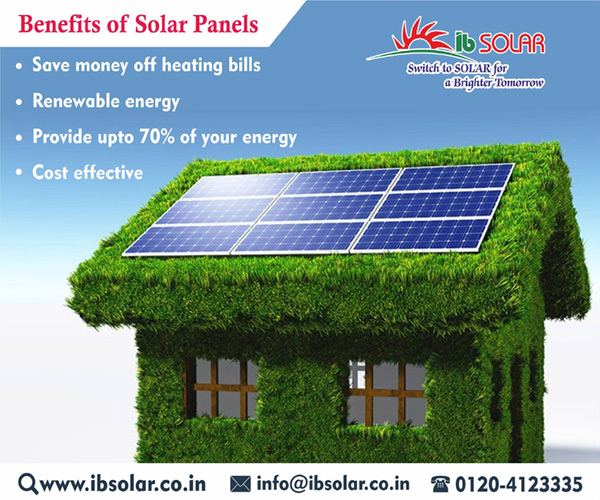Just How Solar Energy Can Help You Save Cash and Decrease Your Carbon Impact
The integration of solar energy right into your energy portfolio provides an engaging chance for both economic savings and environmental stewardship. By harnessing the sunlight's power, house owners can dramatically decrease their monthly utility expenditures while additionally securing versus the changability of future power expenses. Additionally, the change to solar adds to a marked decline in carbon exhausts, aligning individual financing with more comprehensive environmental objectives. As different government rewards end up being readily available, the inquiry develops: how can one effectively browse the preliminary financial investments and ongoing advantages of solar modern technology to maximize both financial and ecological gains?
Recognizing Solar Power Cost Savings
While the transition to solar power usually entails a preliminary investment, understanding solar energy financial savings is important for property owners and businesses alike. Solar power systems can dramatically minimize electrical power expenses by utilizing the sunlight's energy, converting right into significant lasting economic benefits. By generating their very own electrical power, customers decrease dependence on grid power, which goes through rising and fall prices. These savings can accumulate in time, usually leading to a quick roi.
In addition, solar power systems may certify for different financial rewards, consisting of tax obligation credit histories and refunds, additionally enhancing their cost-effectiveness. The accessibility of web metering enables users to market excess energy back to the grid, producing an additional income stream. These factors contribute to the general cost savings connected with solar power.

In addition to direct financial financial savings, solar power provides the included benefit of raising home worth. Homes geared up with photovoltaic panels are often much more eye-catching to buyers, as they promise lower energy costs - Simply Solar Illinois. Recognizing these aspects is necessary for any individual considering solar energy, as it highlights not simply the potential financial gains, yet additionally the wider ecological and economic advantages of adopting sustainable power remedies
Preliminary Costs vs. Long-Term Conveniences
When reviewing solar energy, it is essential to consider the first expenses versus the long-lasting benefits. The in advance investment for solar panels, installation, and related devices can be substantial, typically ranging from $15,000 to $30,000, depending upon the system dimension and home power demands. This first expenditure may prevent some property owners; nevertheless, it is essential to think about the possible savings with time.
Once installed, solar power systems can considerably minimize and even get rid of month-to-month electrical power costs, resulting in considerable long-term financial benefits. Researches show that homeowners can conserve anywhere from $10,000 to $30,000 over the lifespan of their planetary system, generally 25 years. Furthermore, several states use incentives, tax obligation credit ratings, and refunds that can balance out initial expenses, making solar a lot more accessible.

Minimizing Your Carbon Impact
Minimizing your carbon footprint is an important factor web link to consider in today's ecologically aware society, and adopting solar power is one of the most reliable approaches to attain this objective. Solar power is a tidy, eco-friendly source that significantly lessens dependence on fossil fuels, which are significant contributors to greenhouse gas exhausts.

Moreover, the prevalent fostering of solar technology encourages the growth of eco-friendly jobs and supports advancements in energy storage space and efficiency. The more people and companies invest in solar energy, the better his comment is here the cumulative reduction in carbon emissions, cultivating a cleaner environment for future generations.
Government Motivations and Refunds
Taking on solar power not only benefits the setting but can likewise lead to considerable financial cost savings, particularly with the availability of government incentives and rebates. Different federal, state, and local programs are made to encourage home owners and services to purchase solar power systems, making the transition more budget-friendly.
One of one of the most popular incentives is the Federal Investment Tax Credit Score (ITC), which allows planetary system proprietors to deduct a significant portion of the setup costs from their federal tax obligations. This motivation has been crucial in reducing the in advance expenditures associated with solar power systems. Additionally, lots of states supply their own tax credit scores, gives, and refunds that can even more improve savings.
Furthermore, some city governments provide residential or commercial property tax exemptions for solar installations, guaranteeing that house owners do not face increased real estate tax as an outcome of this page their sustainable power financial investments. Utility business might also provide rewards, including internet metering and feed-in tolls, which allow solar power individuals to sell excess power back to the grid.
Choosing the Right Solar System
Selecting the appropriate planetary system is essential for optimizing power performance and economic advantages. The choice pivots on several factors, consisting of energy requirements, spending plan, and available room. Home owners need to start by examining their power intake to establish the system dimension needed for optimal efficiency.
Following, think about the different kinds of solar innovations offered. Simply Solar Illinois. Photovoltaic Or Pv (PV) panels are one of the most common, converting sunshine directly into electrical energy, while solar thermal systems concentrate on heating water. Each kind has distinctive advantages depending on specific needs
Budget factors to consider are also critical. Initial installation costs can vary dramatically, so it's important to contrast quotes from numerous carriers and check out funding options. Government motivations and rebates can better lower the monetary problem, making solar systems extra accessible.
Conclusion
In recap, solar energy provides a sensible option for accomplishing substantial price financial savings while simultaneously decreasing carbon emissions. The preliminary investment, though considerable, yields considerable long-term economic advantages, with potential savings ranging from $10,000 to $30,000 over 25 years. Additionally, the ecological advantages of solar power add to lasting techniques essential for combating environment adjustment. Federal government rewards improve the usefulness of solar innovation adoption, motivating a transition towards a cleaner, extra economically effective energy source.